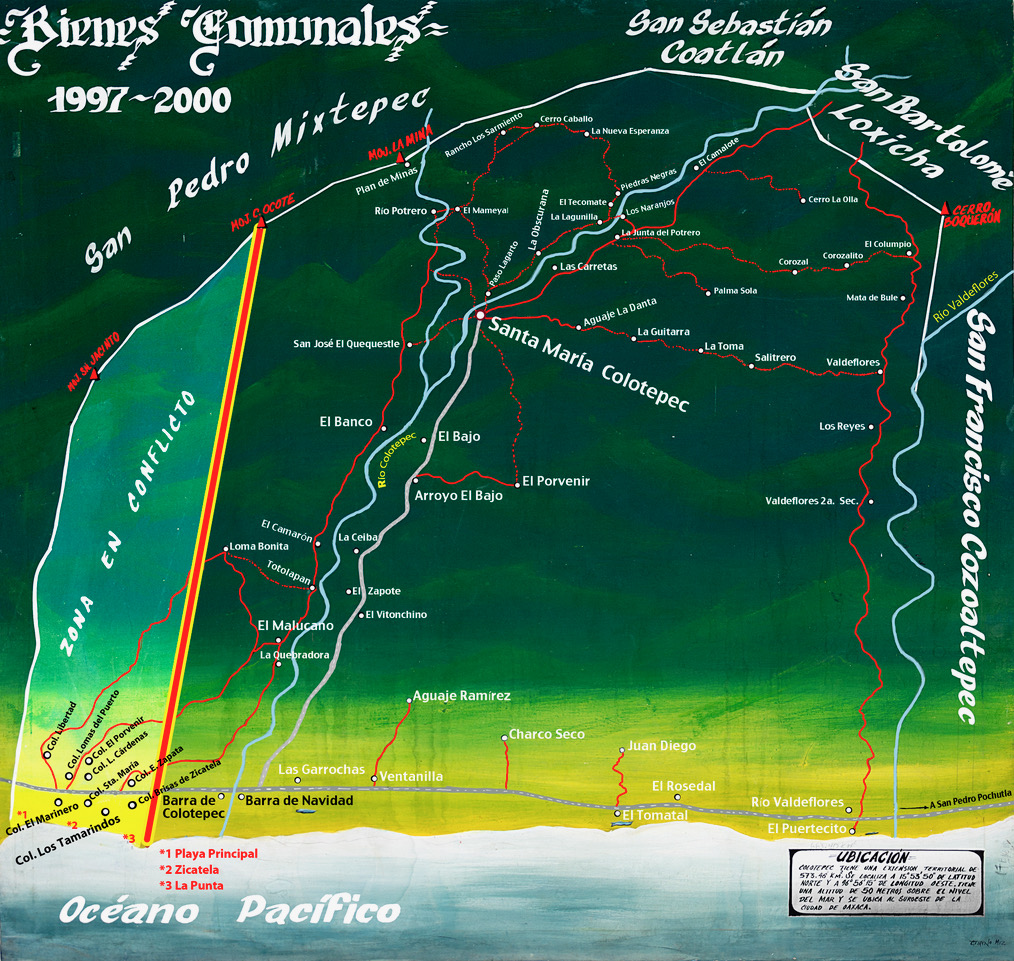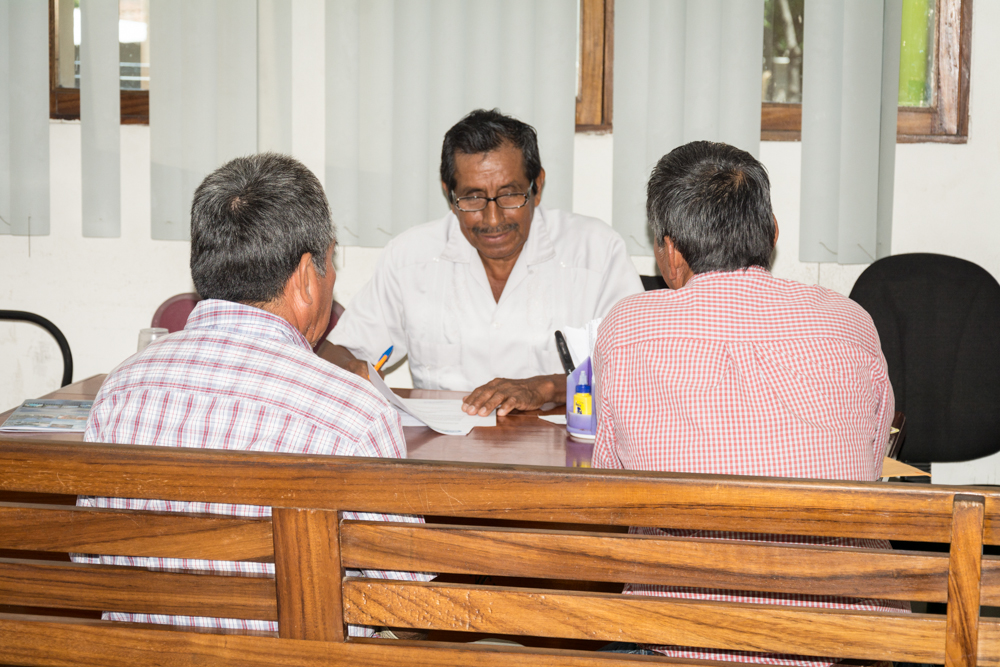
The Communal Land of Colotepec
If you have ever considered buying land in Puerto Escondido, you probably know that most of the land on the Oaxaca Coast is administered by the local communities through Bienes Comunales. The land is considered communal in the sense that elected members of the Comisariado (Commission) and the Asamblea de Comuneros (Assembly) are responsible for zoning changes and for issuing Actas (Constancias) de Posesión (Acts of Possession), which for all practical purposes are the same as titles; except when they aren’t.
On private land, you receive clear title (escritura pública) to your property, and you must pay property taxes and a capital gains tax when you sell. These fees do not apply on communal land.
Part of Puerto Escondido was expropriated and privatized by the Federal Government in 1970. These privatized lots all have clear titles from San Pedro Mixtepec. However, the expropriated land that is contested by Santa María Colotepec is administered by its Bienes Comunales and has actas. (See map.)
If you are a Mexican national, it probably doesn’t make much difference whether you buy property with a clear title in Bacocho or in the Punta with an acta. But for foreigners it’s a whole other kettle of fish.
Foreigners cannot own land within 50 km of the coast line — it’s in the Mexican Constitution. However, a foreigner can possess land in the restricted zone through a bank trust (fideicomiso). Unfortunately, you can only get a bank trust if you have clear title, which eliminates most of the local real estate. Except, foreigners are allowed to set up a Mexican corporation, and the corporation can possess communal land. (The alternative is to purchase the land through a Mexican presta nombre who will make the purchase in his or her name. This practice is not only illegal but also very risky.)
In June, we visited the Bienes Comunales of Santa María Colotepec where we interviewed Melitón Guzmán Cortés, the commission treasurer. We learned that this Bienes Comunales was constituted in 1968; at that time there were only around 50 farmers and ranchers who received actas. He told us that close to 4,800 actas were issued from January 2015 to June 2017.

Photo: Ernesto J. Torres
There was a time in the 1970s and later when unscrupulous commissions issued actas, especially in Brisas de Zicatela (the Punta), on lots where they had already had been assigned to other owners. The records were lost or destroyed. This has led to a lot of litigation. Don Melitón explained that when there were two or more actas for the same property the oldest acta prevailed.
For many years, the assembly in Colotepec was inactive and the commission (president, treasurer and secretary) was elected for its 3-year term by all the Mexican residents of the area, contrary to the law which limits the vote to the Assembly of Comuneros. Last year, 1,200 newly-registered comuneros were added to the rolls and the assembly was re-constituted. Future comuneros will be accepted into the assembly after a 5-year waiting period during which time they must have participated in all the required tequios (community service) and offer proof of being members in good standing in the community in order for their membership to be approved by the assembly.










